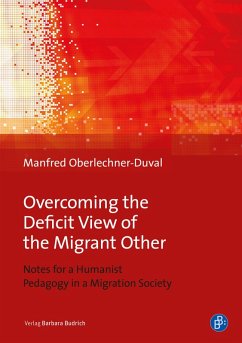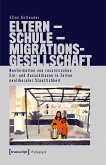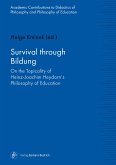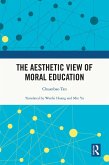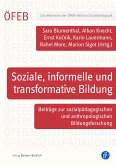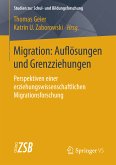What contribution can a humanistic pedagogy make in the context of a migration society? The author uses three examples to illustrate the deficit-oriented pressure to assimilate that foreigners are often subjected to: the Chicago School of immigration studies, the "2008 Integration Plan" of the Austrian federal state of Salzburg, and Hartmut Esser's phases of integration. The illustrative critique of these models is primarily based on Edward W. Said's theory of "othering", Zygmunt Bauman's diagnoses of modernity, and the socially critical reflections of Max Horkheimer and Theodor W. Adorno. In this way, the author develops components for a humanistic education within a migration society and presenting it as a universalistic alternative to the prevailing particularistic approaches in contemporary educational theory.
Dieser Download kann aus rechtlichen Gründen nur mit Rechnungsadresse in A, B, BG, CY, CZ, D, DK, EW, E, FIN, F, GR, H, IRL, I, LT, L, LR, M, NL, PL, P, R, S, SLO, SK ausgeliefert werden.

